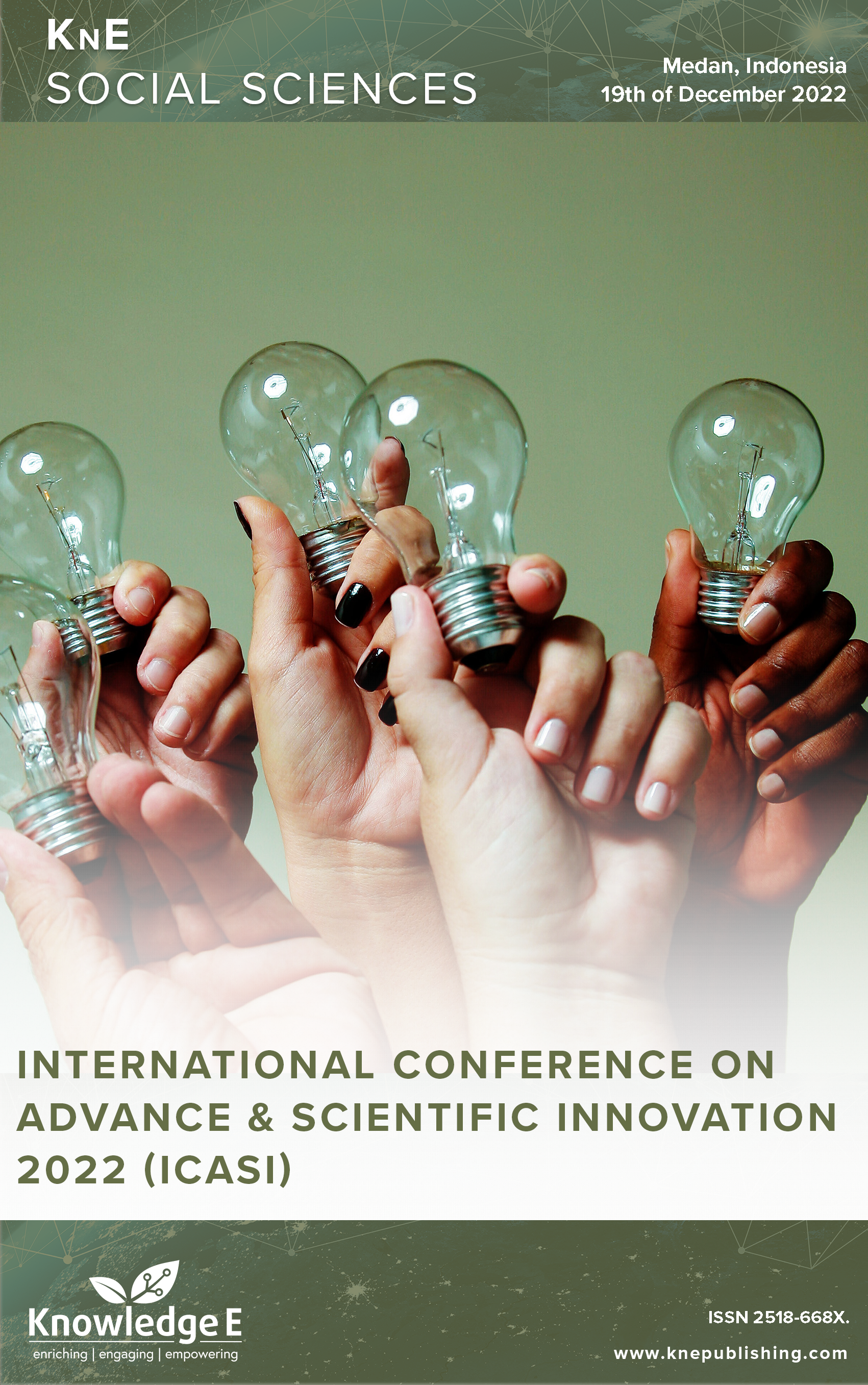The Implementation of `Halal Logistics' During the COVID-19 Pandemic to Optimize the Transportation of Halal Products at PT BGR Logistics, Jakarta
DOI:
https://doi.org/10.18502/kss.v8i9.13394Abstract
One of the several disruptions caused by the COVID-19 virus is business transportation and logistics problems. Handling logistics and quality service is one of the keys to the success of selling halal products on the market. PT BGR Logistics is currently implementing a halal logistics system, especially in the Warung Pangan application, which is one of its businesses. This study aimed to determine whether the implementation of halal logistics during the pandemic can improve service quality. Hopefully, this article can be used as a reference for the future of PT BGR Logistics and by the general public. This study used a quantitative method with a sample of Warung Pangan application users as buyers around JABODETABEK.
Keywords: Halal Logistics, Halal Product, Disruption Covid 19,Service Quality
References
[2] Arianto Patunru, GO, PA. Penanganan Gangguan Rantai Pasok Pangan di Masa Pembatasan Sosial terkait Pandemi Covid-19. Journal Ekonomi. 2020;(3):1–8.
[3] Ashari RT. Pengembangan Sistem Logistik Produk Halal di Indonesia. Halal Research Journal. 2021;1(1):8–19.
[4] Notiasari GM, Nabilah SF. Hidayat DR, Sitorus PP, Gultom S. The Promotion Strategy To Increase Public Awareness of Halal Logistics In Indonesia Glob. Res. Sustain. Transp. Logist. 2018. p. 1224–1232, 2018, doi: https://doi.org/ISSN2662-5778.
[5] Hua W, Jing Z. An empirical study on e-commerce logistics service quality and customer satisfaction. WHICEB Proceeding,2015. p. 269-275.
[6] Pratiwi SW, Suparwan, SNA. Pengaruh Integrated Marketing Dan Relationship Marketing Terhadap Loyalitas Pelanggan. Jurnal Manajemen Bisnis Transportasi Dan Logistik ( JMBTL). 2019; 5(2):207–212. https://doi.org/ISSN. 2407-635X
[7] Priyabrata Chowdhury, S. K. Studi rantai pasokan terkait pandemi COVID- 19:. Penelitian Transportasi Bagian E. 2021;148.
[8] Saragih NI, Hartati V, Fauzi M. Tren, Tantangan, dan Perspektif dalam Sistem Logistik pada Masa dan Pasca (New Normal) Pandemik Covid-19 di Indonesia. Jurnal Rekayasa Sistem Industri. 2020;9(2):77–86.
[9] Sari NK, Hasby F, Hidayat RD, Sugiharti E. The Implementation of Halal Logistic System on Cosmetic Product
[ALTR]. Advances in Transportation and Logistics Research. 2019;2(1):778–82.
[10] Saribanaon E, Purba O, Agushinta L. Efektifitas Pelaksanaan Logistik Halal. Jurnal Manajemen Bisnis Transportasi Dan Logistik. 2019;5(3):319–330. Retrieved from http://library.itl.ac.id/jurnal
[11] Soon JM, Chandia M, Mac Regenstein J. Halal integrity in the food supply chain. Br Food J. 2017;119(1):39–51.
[12] Sugiyono. Metode Penelitian Kuantitatif, Kualitatif, dan R&D. Bandung: Alfabeta; 2019
[13] Zulfakar MH, Anuar MM, Talib MS. Conceptual Framework on Halal Food Supply Chain Integrity Enhancement. Procedia Soc Behav Sci. 2014;121:58–67.
[14] Zulfakar MH, Jie F, Chan C.. Halal Food Supply Chain Integrity: From a Literature Review to a Conceptual Framework. Proceedings of the 10th ANZAM Operations, Supply Chain and Services Management Symposium. 2012;61(4):1–23.
[15] www.AyoAsik.com (download on July 24,2021)
[16] www.Bisnis.com (download on July 24,2021)

